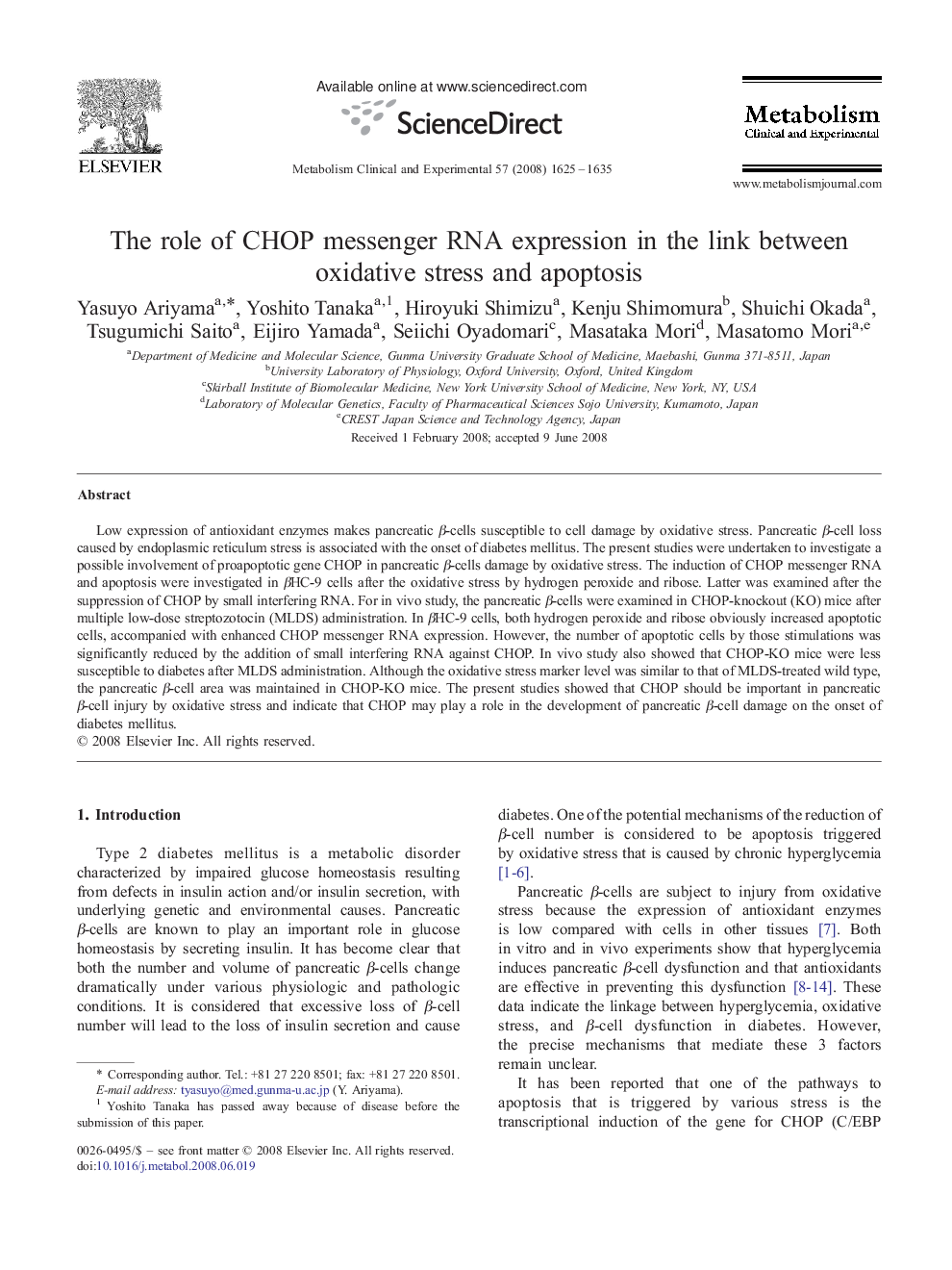| کد مقاله | کد نشریه | سال انتشار | مقاله انگلیسی | نسخه تمام متن |
|---|---|---|---|---|
| 2806548 | 1157124 | 2008 | 11 صفحه PDF | دانلود رایگان |

Low expression of antioxidant enzymes makes pancreatic β-cells susceptible to cell damage by oxidative stress. Pancreatic β-cell loss caused by endoplasmic reticulum stress is associated with the onset of diabetes mellitus. The present studies were undertaken to investigate a possible involvement of proapoptotic gene CHOP in pancreatic β-cells damage by oxidative stress. The induction of CHOP messenger RNA and apoptosis were investigated in βHC-9 cells after the oxidative stress by hydrogen peroxide and ribose. Latter was examined after the suppression of CHOP by small interfering RNA. For in vivo study, the pancreatic β-cells were examined in CHOP-knockout (KO) mice after multiple low-dose streptozotocin (MLDS) administration. In βHC-9 cells, both hydrogen peroxide and ribose obviously increased apoptotic cells, accompanied with enhanced CHOP messenger RNA expression. However, the number of apoptotic cells by those stimulations was significantly reduced by the addition of small interfering RNA against CHOP. In vivo study also showed that CHOP-KO mice were less susceptible to diabetes after MLDS administration. Although the oxidative stress marker level was similar to that of MLDS-treated wild type, the pancreatic β-cell area was maintained in CHOP-KO mice. The present studies showed that CHOP should be important in pancreatic β-cell injury by oxidative stress and indicate that CHOP may play a role in the development of pancreatic β-cell damage on the onset of diabetes mellitus.
Journal: Metabolism - Volume 57, Issue 12, December 2008, Pages 1625–1635